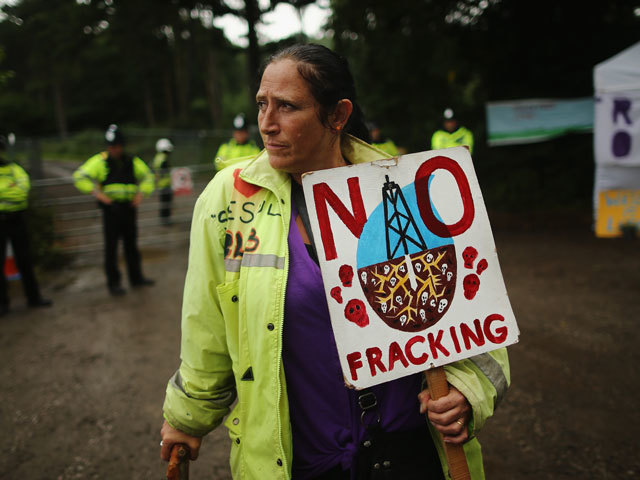
Cuadrilla says it is unlikely to put a controversial site at the centre of a fracking row in the south of England into production.
The move comes after high profile anti-fracking protests at the site near Balcombe in West Sussex over recent weeks, sparking renewed debate over the benefits and impact of the hydrocarbon extraction method in the UK.
After exploratory oil drilling at the site, the company today confirmed it was not expected to step up the Balcolmbe site, and added it was not planning on focusing on any more sites “at the moment” in Sussex.
“The site is unlikely to go into full production,” said a spokesman for the company.
“We are not ruling it out completely. The fact is that we have a large licence area and there are likely to be more suitable sites elsewhere.”
For more than two weeks, campaigners have staged a gathering at the entrance to the exploratory site in a bid to highlight their concerns about fracking and slow down deliveries.
Later this week, hundreds more activists are expected to descend on Balcombe for a six-day camp, dubbed Reclaim the Power.
Although Cuadrilla has said it does not propose to conduct hydraulic fracturing in the area, opponents to the extraction method were concerned the company could do so in the future.
Greenpeace energy campaigner Leila Deen said: “The public pressure is clearly getting to Cuadrilla, but Balcombe deserves clarity.
“If the company is not going to extract shale there, it owes local residents an assurance and should give details of when it will leave the village, where it’s clearly not wanted.
“Cuadrilla has caused a lot of pain in Balcombe for no gain, which is likely to be the experience of fracking across England.
“At least after the scale of opposition and protest in Balcombe, other communities will feel empowered to fight back.”
The debates around
Prime Minister David Cameron had called on people to support fracking, insisting it would gain “real public support” such as potentially cutting energy bills when the benefits are explained, and pointing to the impact it has had on the US energy market.
Mr Cameron also claimed a thriving shale-gas industry could create tens of thousands of jobs.
He sought to play down fears about the environmental dangers posed by fracking, claiming there was “no evidence” that it would cause contamination of water supplies or other damage if properly regulated.